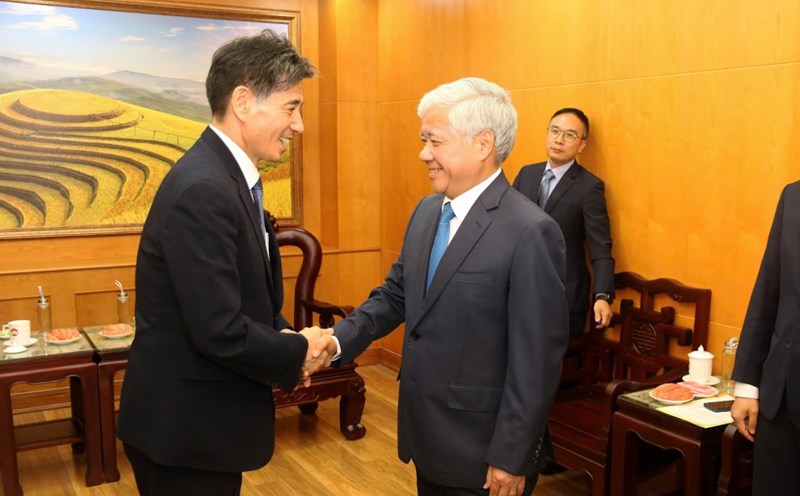Proposing a new preferential allowance regime for public health workers
The Ministry of Health continues to seek opinions on the draft Decree regulating preferential allowances according to occupation for civil servants and employees at public health facilities, replacing Decree No. 56/2011/ND-CP.
The Ministry of Health said that after more than 14 years of implementation, Decree 56/2011/ND-CP has revealed many limitations when disease models change, emerging diseases are complicated, and non-communicable diseases increase. Facing major challenges in preventive medicine, the Ministry has implemented many solutions to improve the quality of medical examination and treatment and is developing policies to attract human resources, adjusting preferential allowances to suit reality.
In the draft, the Ministry of Health proposes to divide into many preferential allowance levels according to the specific nature of the job and working area:
70% allowance: Applicable to civil servants directly working in areas at high risk of infection such as treatment of fever, tuberculosis, HIV/AIDS, mental health, group A infectious diseases; intensive resuscitation; forensic assessment, forensic psychiatry, pathology; working at a level III biosafety laboratory; examination and treatment of drug addiction. In addition, doctors working in particularly difficult socio-economic areas, island communes, island districts and ethnic minority areas, mountainous areas of region II are also in this category.
60% allowance: Awarded to civil servants directly treating emergency patients, anti-poisoning, infectious diseases (except group A), patients with severe disabilities, war invalids, war invalids; testing pathogens; border health quarantine; radiotherapy, chemotherapy, nuclear medicine, nuclear biochemistry; mixing and dividing doses of radioactive pharmaceutical substances. This group also applies to doctors working at commune and ward health stations, disease control centers and preventive health hospitals.
50% allowance: Applicable to civil servants in anesthesia, resuscitation, diagnostic imaging, pediatrics, burns, dermatology, infection control, clinical pharmacy; health workers at commune, ward and town health stations; provincial disease control centers; drug treatment facilities.
40% allowance: Dedicated to work such as testing, general medical examination and treatment, rehabilitation, medical examination, traditional medicine, medicine examination, vaccines, biological products, food safety, nutrition, reproductive health, occupational health, environmental sanitation, social assistance, population work, social work.
30% allowance: Applicable to civil servants working in health education and communication, medical professional work at agencies, schools or not directly working in medical professional work at health service units.
Continuing to reform salary and allowance regimes for public health workers
Minister of Health Dao Hong Lan said that the Ministry of Health is developing two decrees: One is to regulate preferential allowances according to occupations to replace Decree 56/2011/ND-CP, expected to be completed in December 2025. Second, stipulate a number of special allowances, prevent epidemics and support for health workers in villages and hamlets, expected to be completed in September 2025. The Ministry also proposed to arrange salaries to level 2 immediately upon recruitment for doctors and pharmacists to attract human resources.
Regarding seniority allowances, according to Resolution 27-NQ/TW, this regime has been abolished to ensure correlation and overall salary reform. The Ministry of Health hopes to receive the consensus of voters, and at the same time coordinate with the Ministry of Public Security to implement regulations on protecting medical staff, strictly handling assault, towards a safe and civilized working environment.











